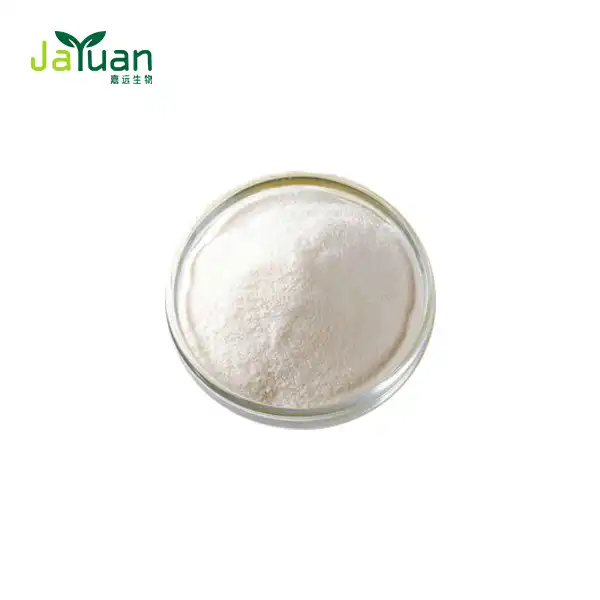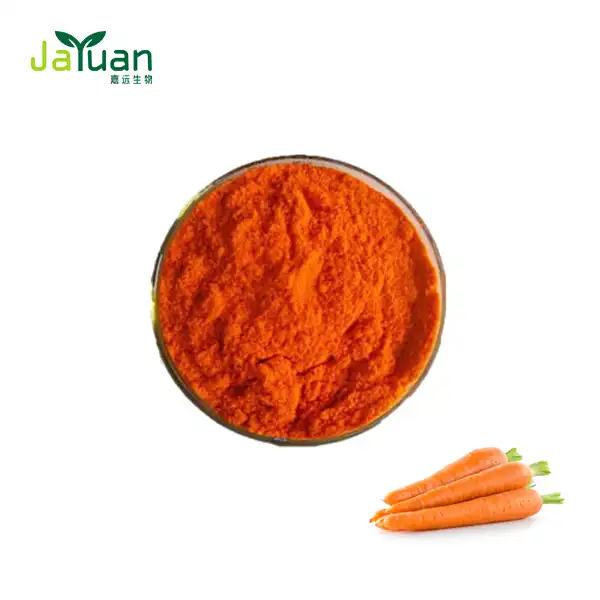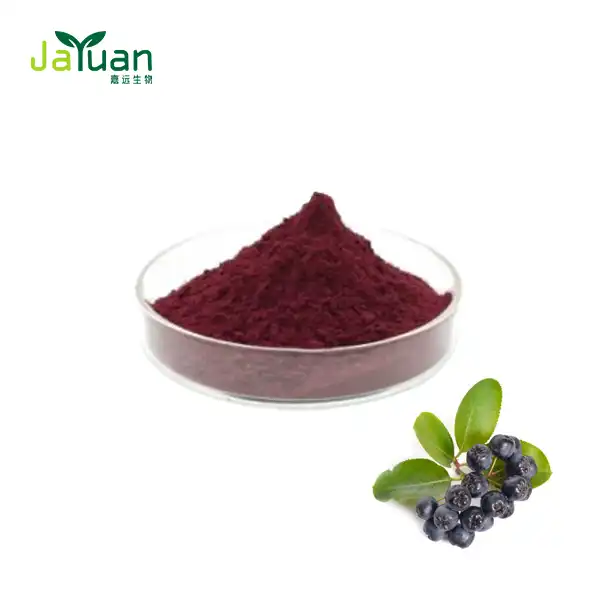How effective is ginger extract in antioxidants?
Ginger, a beloved spice and medicinal herb, has been used for centuries in various cultures for its potential health benefits. One area of increasing interest is the antioxidant properties of ginger extract powder. This article delves into the effectiveness of ginger extract powder as an antioxidant powerhouse, exploring its components and potential benefits for overall health and wellness.

Does ginger extract powder have a higher ORAC value than turmeric?
When comparing antioxidant potency, the Oxygen Radical Absorbance Capacity (ORAC) value is often used as a benchmark. Ginger extract powder and turmeric are both renowned for their antioxidant properties, but how do they stack up against each other?
While turmeric is often touted as a powerful antioxidant, ginger extract powder holds its own in terms of ORAC value. The ORAC value of ginger extract can vary depending on the extraction method and concentration, but it generally ranges from 14,840 to 28,811 μmol TE/100g. Turmeric, on the other hand, has an ORAC value of around 127,068 μmol TE/100g.
At first glance, it might appear that turmeric has a significantly higher antioxidant capacity. However, it's essential to consider that ginger extract powder is often more concentrated than whole ginger root, which can boost its antioxidant potential. Additionally, the bioavailability and absorption of antioxidants can vary between different compounds, meaning that a higher ORAC value doesn't always translate to greater effectiveness in the body.
Moreover, ginger extract powder contains a unique blend of antioxidant compounds that may offer distinct benefits compared to turmeric. The synergistic effects of these compounds could potentially enhance the overall antioxidant activity of ginger extract in ways not fully captured by the ORAC value alone.
Gingerol and shogaol: Key antioxidant compounds in ginger extract
The antioxidant prowess of ginger extract can be attributed to its rich phytochemical profile, particularly its content of gingerols and shogaols. These bioactive compounds are responsible for many of ginger's potential health benefits, including its antioxidant properties.
Gingerols are the primary active components in fresh ginger. They are phenolic compounds that give ginger its characteristic pungent flavor. 6-gingerol, in particular, is the most abundant and well-studied of these compounds. Research has shown that gingerols possess robust antioxidant activities, capable of neutralizing harmful free radicals and reducing oxidative stress in the body.
Shogaols, on the other hand, are formed when ginger is dried or heated, through the dehydration of gingerols. These compounds are more pungent than gingerols and have demonstrated even stronger antioxidant properties in some studies. The conversion of gingerols to shogaols during the drying process may explain why some people find dried ginger to have a more potent flavor and effect.
The combination of gingerols and shogaols in ginger extract creates a powerful antioxidant cocktail. These compounds work synergistically, potentially offering greater antioxidant benefits than either compound alone. This synergy may contribute to the overall effectiveness of ginger extract as an antioxidant supplement.
Moreover, ginger extract contains other antioxidant compounds such as flavonoids and tannins, which further enhance its antioxidant capacity. This diverse array of antioxidants allows ginger extract to combat oxidative stress through multiple mechanisms, potentially offering more comprehensive protection against free radical damage.

Can ginger extract powder reduce oxidative stress in the body?
Oxidative stress occurs when there's an imbalance between free radicals and antioxidants in the body. This imbalance can lead to cellular damage and contribute to various health issues. The antioxidant properties of ginger extract powder make it a promising natural option for combating oxidative stress.
Several studies have investigated the potential of ginger extract to reduce oxidative stress in various contexts. For instance, research has shown that ginger extract may help protect against oxidative damage in the liver, kidneys, and other organs. This protective effect is largely attributed to the antioxidant activities of gingerols and shogaols.
In addition to directly neutralizing free radicals, ginger extract may also enhance the body's own antioxidant defenses. Some studies suggest that ginger extract can increase the activity of antioxidant enzymes such as superoxide dismutase and glutathione peroxidase. These enzymes play crucial roles in the body's natural antioxidant system, helping to maintain a healthy balance and protect against oxidative stress.
Furthermore, the anti-inflammatory properties of ginger extract may indirectly contribute to its ability to reduce oxidative stress. Chronic inflammation and oxidative stress often go hand in hand, creating a vicious cycle that can perpetuate cellular damage. By helping to modulate inflammatory responses, ginger extract may create a more favorable environment for reducing oxidative stress.
It's worth noting that while these findings are promising, more research is needed to fully understand the extent of ginger extract's effects on oxidative stress in humans. Factors such as dosage, duration of use, and individual differences can all influence the effectiveness of ginger extract as an antioxidant supplement.
Conclusion
Ginger extract powder shows significant potential as an effective antioxidant supplement. Its unique blend of bioactive compounds, particularly gingerols and shogaols, contribute to its antioxidant properties. While it may not have a higher ORAC value than turmeric, ginger extract offers its own distinct set of benefits. Its ability to potentially reduce oxidative stress in the body makes it a valuable addition to a health-conscious lifestyle.
As with any dietary supplement, it's important to consult with a healthcare professional before incorporating ginger extract powder into your routine. They can provide personalized advice based on your individual health needs and circumstances.
Are you interested in exploring the antioxidant potential of ginger extract for your products? At Xi'an Jiayuan Bio-Tech, we specialize in producing high-quality plant extracts, including ginger extract powder. Our team of experts is dedicated to providing premium ingredients that meet your specific needs. To learn more about our ginger extract powder and how it can enhance your product lineup, please don't hesitate to reach out to us at sales@jayuanbio.com, sales1@jayuanbio.com. Let's work together to harness the power of nature's antioxidants!
References
1. Mashhadi NS, et al. Anti-oxidative and anti-inflammatory effects of ginger in health and physical activity: review of current evidence. Int J Prev Med. 2013;4(Suppl 1):S36-S42.
2. Mao QQ, et al. Bioactive Compounds and Bioactivities of Ginger (Zingiber officinale Roscoe). Foods. 2019;8(6):185.
3. Rahmani AH, et al. Active ingredients of ginger as potential candidates in the prevention and treatment of diseases via modulation of biological activities. Int J Physiol Pathophysiol Pharmacol. 2014;6(2):125-136.
4. Tohma H, et al. Antioxidant activity and phenolic compounds of ginger (Zingiber officinale Rosc.) determined by HPLC-MS/MS. Food Meas. 2017;11:556–566.
5. Prasad S, Tyagi AK. Ginger and Its Constituents: Role in Prevention and Treatment of Gastrointestinal Cancer. Gastroenterol Res Pract. 2015;2015:142979.
6. Akinyemi AJ, et al. Dietary supplementation of ginger and turmeric improves reproductive function in hypertensive male rats. Toxicol Rep. 2015;2:1357-1366.





